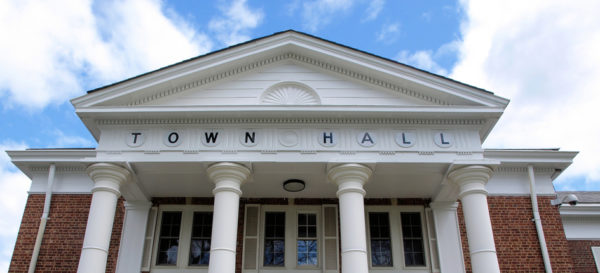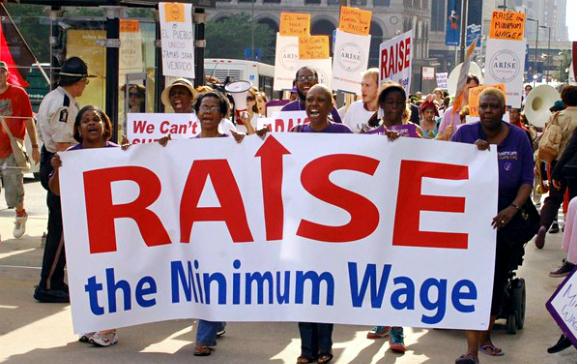In March 2016, the North Carolina legislature exercised its broad preemption powers, overriding community lawmaking in the state by making it legal to discriminate against the LGBT community.
Specifically, the legislature passed a law, House Bill 2 – which Governor Pat McCrory then signed – which prohibits communities from adopting stronger anti-discrimination laws than those in place at the state level. The legislature’s actions came in response to the actions of a number of cities in the state, including Charlotte, Raleigh, Durham, and Chapel Hill, which had enacted anti-discrimination laws at the local level.
The new state law preempts – and thus overrides and nullifies – those protective local laws. This means that the state legislature deliberately and knowingly eliminated protections for the LGBT community in North Carolina.
The North Carolina legislature preempted communities from adopting stronger anti-discrimination laws than those in place at the state level.
The fallout has been significant. From Bruce Springsteen to Pearl Jam, to Ringo Starr to Cirque du Soleil, a slew of businesses and entertainers have canceled events and operations in North Carolina in response to the new law. As similar bills advance in other states, there is a heightened awareness of the power of state governments to preempt community lawmaking.
Despite the headlines, however, what’s really unusual about the response to the North Carolina legislature’s action is that it was noticed at all.
The Power of State Preemption
For well over a century, no legal principle has been worshipped more than that of state preemption – the authority of a state legislature to nullify the authority of people at the local level to adopt certain laws.

Reprinted from https://www.turboroster.com/Municipality
While most may believe that such a power – tremendous as it is – finds its authority within state constitutions, it doesn’t exist there. Concocted purely by the courts over a hundred years ago, the power of preemption was ushered in the door by another, longstanding legal principle – that because municipal corporations (our cities, towns, and counties) are created by the state, their powers can be changed at the whim of the state that created them.
How State Preemption Power is Used
While this may come as a surprise to many, these doctrines – state preemption of local laws, and the state’s unbridled authority to define the scope of community lawmaking authority – have been used extensively over the last century by those powerful enough to wield them.
Thus, agribusiness corporations have used state legislatures to adopt “right to farm” laws which protect factory farm operations and the planting of GMO crops from interference by local lawmaking. Oil and gas corporations have used legislatures to adopt laws which forbid communities from banning drilling and fracking. Water bottling corporations have used state lawmaking to prohibit communities from banning corporate water withdrawals.

Reprinted from: http://all-len-all.com/preempting-democracy-whats-not-being-voted-on-this-november-is-sinister/
And the list goes on. As with North Carolina’s House Bill 2, state legislatures have also used state preemption to prohibit communities from increasing the minimum wage, creating municipal broadband systems, passing gun control measures, creating sanctuary cities for immigrants and refugees, and banning plastic bags, as well as establishing medical and parental leave laws. According to the group Grassroots Change, at least twenty-nine state legislatures entertained preemption bills in 2015 alone.
While political commentators often recognize that the preemptive actions of state legislatures have a negative effect – foreclosing municipal authority in certain areas of law – most fail to acknowledge that preemptive laws also have a proactive effect. That is, such state laws forcibly mandate that communities accept activities and policies that the legislature has preempted the locality from acting on – such as fracking, water bottling operations, or lower minimum wages. In a sense, preemption laws actually legalize those activities and policies, much in the same way that the North Carolina legislature legalized discrimination against the LGBT community.
Communities Rejecting State Preemption
In a country ostensibly based on the cherished principle of self-government, many are refusing to accept a structure of law which divests them of lawmaking authority when and where they need it most. They are beginning to question the very authority of state governments to legalize that which harms them.
“Power concedes nothing without a demand. It never did and it never will.” – Frederick Douglass
Close to two hundred municipal communities across the United States have now begun to directly challenge the traditional reach of state preemption. They’re adopting local Community Bills of Rights which ban activities and projects that would violate those rights. In communities such as Pittsburgh, the city council enacted a local bill of rights recognizing environmental rights of the community and nature, and protected those rights by banning fracking and drilling.
These communities believe that when they expand civil, political, and environmental rights at the local level – beyond the floor of rights secured by state constitutions and the federal constitution – that their local laws are beyond the reach of state preemptive power.
That position is not as radical as it may sound – after all, it is well-settled law that state constitutional guarantees may exceed the floor of federal ones. Those accused of the commission of crimes in Massachusetts, for example, have more rights under the Massachusetts Constitution than under the U.S. Constitution.
Preemption in North Carolina
So what does all of this mean for North Carolina?
The problem in North Carolina (and other states) isn’t just the discriminatory intent of state legislators. It’s that they have the authority to act on that intent, by foreclosing the ability of people at the local level to protect and defend civil rights.
To make the systemic change that is needed, the people of North Carolina should not allow the state to exercise power that it does not have. Instead, North Carolina communities should pass anew their anti-discrimination laws – openly flouting the authority of the state to override them – and then force the state to test its political will by punishing them.
Further, they should do what coalitions of communities in five states are now doing – propose a state constitutional amendment that would deprive their state legislatures of the legal, preemptive authority to bar the expansion of civil and political rights within their communities.
As Frederick Douglass once famously declared, “Power concedes nothing without a demand. It never did and it never will.”
Unless the people of North Carolina demand local democracy, the state will continue to impose its own version of governance on its people.
Community Rights Paper #12: Preempting Democracy
Banner photo eprinted from International Business Times http://www.ibtimes.com/hb-2-anti-lgbt-laws-effect-list-concerts-events-canceled-north-carolina-mississippi-2356695

